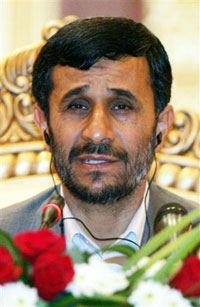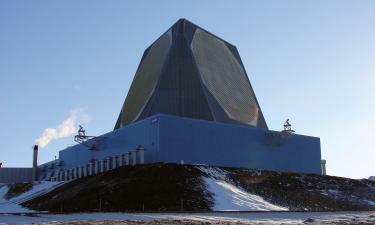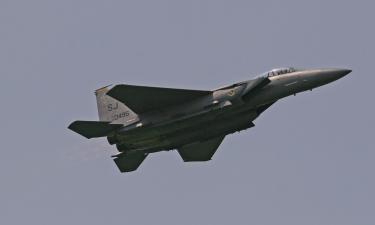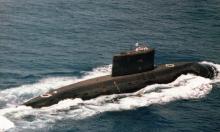Iran challenges US backyard
Following an active diplomacy in the region, President of Iran Mahmoud Ahmadinejad is expected in South America later this week, after his participation in the United Nations Annual Assembly. The Iranian leader is scheduled to meet presidents of Bolivia, Evo Morales and of Venezuela, Hugo Chavez, two critics of Washington foreign policy.

Ahmadinejad will sign agreements on energy and industrial aid as the three leaders seek to stengthen ties. Two months ago, President Chavez visited Iran and pledged to unite the Caribbean and the Persian Gulf. Mr. Chavez and Mr. Ahmadinejad also launched the construction of a joint petrochemical plant on Iran's Gulf coast.
Ahmadinejad swing through Washington’s “backyard” comes after Tehran deployed a very active diplomacy in the region in the last years, something that have caused concern amid US and Israeli governments. President Ahmadinejad visited Venezuela earlier this year as part of a Latin America tour that took him to Nicaragua and Ecuador as well.
Last month, Tehran announced the signature of two protocols to boost trade with Cuba and Venezuela, after recent visits of Commerce Minister Masood Mir-Kazemi to the two Caribbean nations. These deals are being carefully watched by Washington and Tel Aviv.
In August, an Israeli diplomatic source told local newspaper Haaretz that Tel Aviv was concerned over the intensive activity of Tehran in the region. According to Haaretz sources Tel Aviv experiences some hostility coming from some Latin American nations. Israeli officials mentioned the six visits of Chavez to Tehran and bilateral projects aimed at boosting cooperation in sensitive issues as nuclear development.
Chavez has repeatedly said that Iran has the right to a peaceful atomic energy industry because it is a sovereign state. Presidents of Bolivia, Ecuador and Nicaragua has expressed a similar view.
However, Tehran’s president does not enjoy the support of many other Latin American nations. Argentina has filed charges against half a dozen of former Iranians officials acussed of plotting the bombing of a Jewish club in Buenos Aires in 1994.
According to Buenos Aires, Tehran does not cooperate to bring this men to courts, since Argentine prosecutors last year charged former Iranian government officials with directing Lebanese militia group Hezbollah to attack the Jewish Community Center, injuring 300 in addition to the 85 killed.
Iran's top diplomat in Buenos Aires, Mohsen Baharvand, said accusations that Iran isn't cooperating would create the impression Argentina favors war against Iran, Clarin reported Sept. 21.
Argentine president Nestor Kirchner is expected to address the issue in his last address to the UN General Assembly before leaving office.
Hernan Etchaleco
Subscribe to Pravda.Ru Telegram channel, Facebook, RSS!




